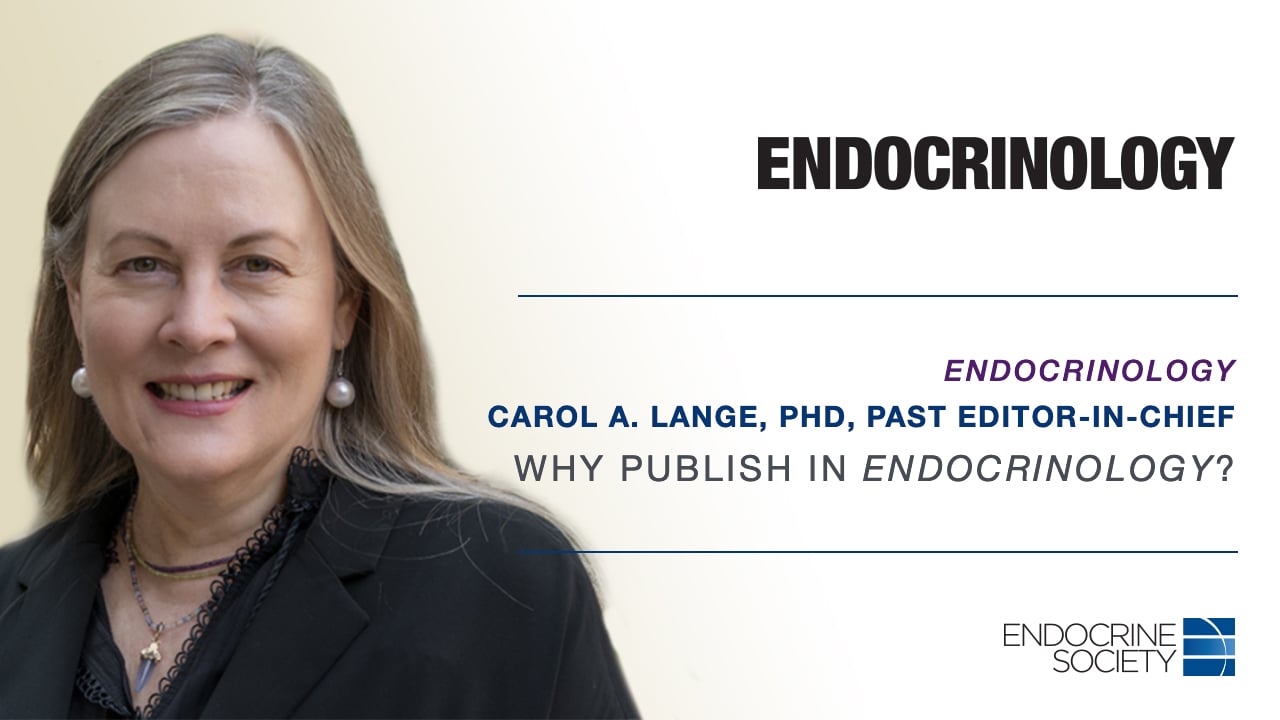Resources for pursuing endocrine-related research
Endocrine researchers are at the core of solving many of the most pressing health problems of our time, from diabetes and obesity to infertility, bone health, thyroid conditions, and hormone-related cancers. Your work has led to incredible accomplishments and remarkable progress in the biological and biomedical sciences that have benefited the lives of millions of Americans.
View highlights of endocrine-related research from the NIH Grants Guide.
New Opportunities
Recent Opportunities
Additional Resources
Data Repositories
NIH Newsletter
Research Supporters
Nominations are open for National Academy of Medicine Award: The National Academy of Medicine’s portal for submitting nominations for the David and Beatrix Hamburg Award for Advances in Biomedical Research and Clinical Medicine is now open. The award recognizes scientists who have made an exceptional biomedical research discovery and/or translation that has fundamentally enriched our understanding of human biology and disease. The award also includes a medal and $50,000. Nominations close on Wednesday, May 20. Learn more.
NIH Collaborative International Research Project (PF5): The NIH has issued a Notice of Funding Opportunity for collaborative, international research projects. The project must be related to the programmatic interests of at least one of the participating NIH Institutes and Centers. Learn more.
NIGMS Institutional Biomedical Undergraduate Research Training Program: The National Institute of General Medical Sciences (NIGMS) at the NIH has issued a funding opportunity for Institutional Biomedical Undergraduate Research Training (BURT) T34 training programs. The goal of this program is to support scientists who have completed their baccalaureate degrees in biomedically-related fields and are interested in transitioning to biomedical research-focused higher degree programs. Learn more about the application cycle and eligibility.
Implementation of Research Security Training Requirements for NIH: As required by the CHIPS and Science Act of 2022, individuals listed on a National Institutes of Health (NIH) grant application must certify their completion of Research Security Training (RST) within 12 months of the date of application submission. While the RST requirement is currently optional, completion of RST for individuals will be effective for grant applications submitted on or after Wednesday, May 25. Review the policy notice.
Emergency Modifications to NIH Peer Review: Through the course of the government shutdown, over 370 study section meetings were cancelled. NIH is working to reschedule these study sections. To address the backlog of applications scheduled for review, NIH is implementing emergency modifications to the review process in which the percentage of applications discussed will be reduced. The top third (30-35 percent) will be discussed and considered for funding; the middle third will be designated as “competitive but not discussed” and considered for funding; the lowest third will be designated as “not competitive and not discussed.” Learn more about the emergency modifications.
Interim Guidance on Reopening of NIH Extramural Activities: Following the reopening of the federal government, NIH is working to reschedule training dates, communicate information related to missed peer review meetings, reestablish dates for grant and contract submissions, and other activities. Learn more. As a friendly reminder, notices of funding opportunities will be published on Grants.gov moving forward beginning in Fiscal Year 2026.
Open Positions at NIH: NIH is currently soliciting applications for Directors of several Institute and Centers. While the turnaround time is tight for these positions, we encourage you to share these positions with your networks to strengthen the pool of applicants for these roles.
OECD Guidance: The Organization for Economic Cooperation and Development (OECD) released a new Guidance Document “on the Generation, Reporting and Use of Research Data for Regulatory Assessments.” This document aims to enhance the consideration and use of research data in regulatory assessments by OECD Member Countries, thereby increasing amount of “nonstandard research data” used by regulators and addressing the need for robust scientific evidence to inform regulatory assessments. The guidance includes information relevant to all groups involved in the life cycle of research data, from generation to regulatory use. Learn more.
NIH Extramural Loan Repayment Program: The National Institutes of Health (NIH) Loan Repayment Program (LRP) is designed to recruit and retain professionals into biomedical research careers. The LRP repays up to $50,000 annually of a researcher's qualified educational debt in return for a commitment to engage in NIH mission-relevant research at a domestic nonprofit or government entity. LRP awards are based on an applicant's potential to build and sustain a research career. Applications are open through Thursday, November 20.
Fellowship Opportunities: The NIH has updated fellowship funding (F30, F31, F32, and F33) for scientists at the predoctoral and postdoctoral level. See the full list of updated fellowships.
Temporary NIH Policy Exception for K Awards: The National Institutes of Health (NIH) issued a temporary policy exception for mentored career development (K) awards. While eligibility for K awards are limited to those who have not previously received the award, an exception has been issued in which individuals with mentored career development awards (K awards) that were prematurely ended on or after January 1, 2025 will be eligible to apply for a new mentored career development award. The exception is effective until July 31, 2026. Learn more.
Recent Opportunities
NIGMS T32 Program Areas of Interest: The National Institutes of Health (NIH) has issued a notice for the National Institute of General Medical Sciences (NIGMS) Predoctoral Basic Biomedical Sciences Research Training Program (T32). NIGMS is encouraging more T32 applications in the following areas of special interest: behavioral-biomedical sciences interface, biotechnology, and trans-departmental basic biomedical sciences. Applications from historically Black colleges and universities, tribal colleges and universities, and institutional development award states are encouraged. The final deadline is Friday, September 25, 2026.
New Early Investigator Grant: National Institutes of Health recently announced the Stephen I. Katz Early Stage Investigator Research Project Grant award. This new award will support early stage investigators (ESIs) for innovative projects in an area of science that represents a change in research direction for the investigator. Importantly, applications will not be allowed to submit preliminary data. The final due dates are Monday, September 28, 2026 and Monday December 28, 2026 for AIDS and AIDS-related applications. Apply today! For other information, see the NIH Notice.
The following resources may be useful for researchers seeking data repositories, databases, or other opportunities for data deposition and/or sharing.

If you are experiencing interruptions or significant delays in receiving grant awards or a disrupted ability to draw down funds, we need to tell Congress about your barriers for them to be addressed. Place complete this brief form to provide us with information on the status of your grant funding.

Carol A. Lange, PhD, past Editor-in-Chief of Endocrinology, and Stephen R. Hammes, MD, PhD, past Editor-in-Chief of Molecular Endocrinology share critical tips on how to get published.

Carol A. Lange, PhD, past Editor-in-Chief of Endocrinology, shares why you should submit your research to our journal. The Society now waives page and color charges for Society members. The journal has also seen a surge of citations.

We rely on your voice to advocate for our policy priorities. Join us to show our strength as a community that cares about endocrinology. Contact your US representatives or European Members of Parliament through our online platform. Take action and make a difference today.